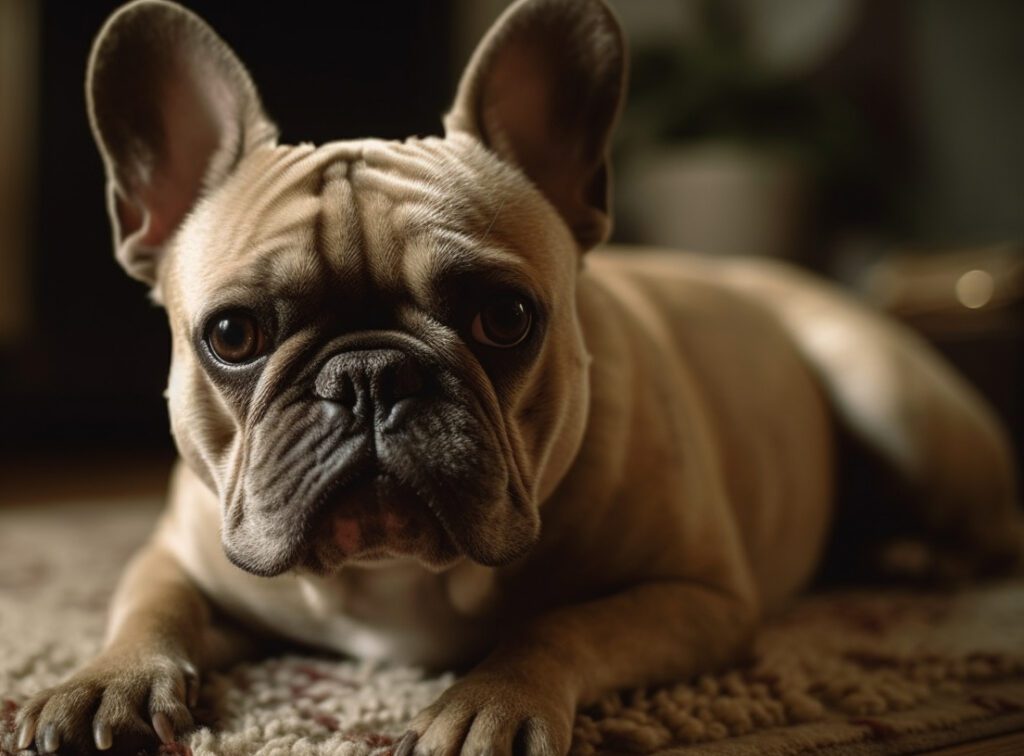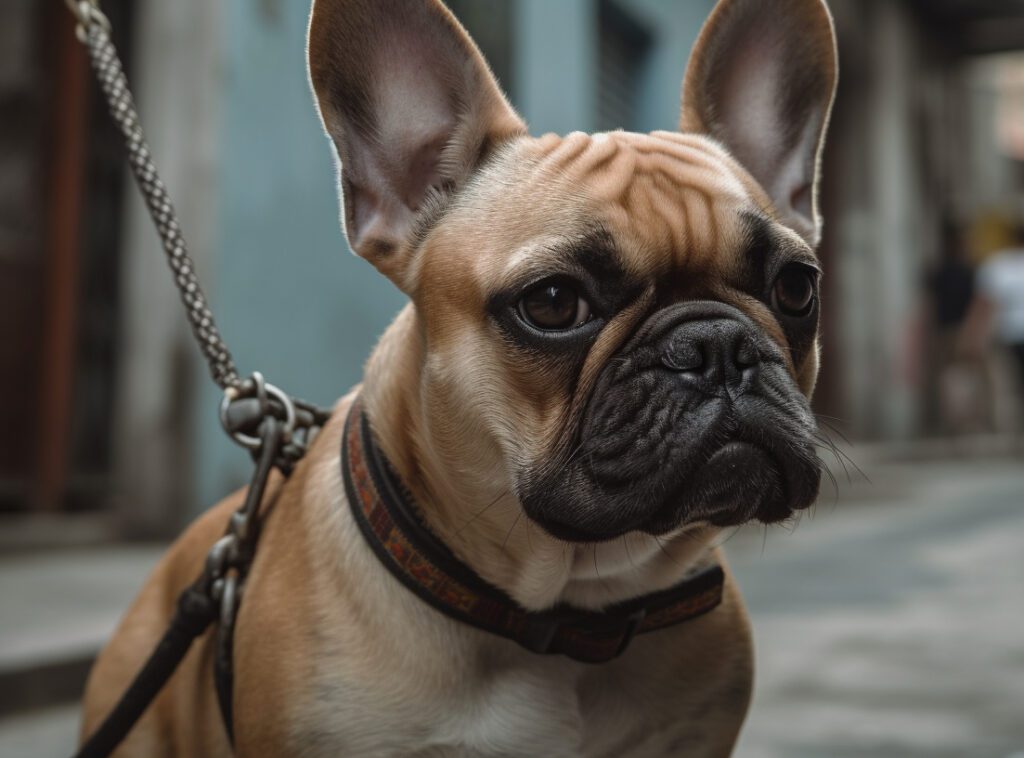French Bulldogs, with their adorable faces and charming personalities, have become a popular breed among dog lovers. However, like all dogs, Frenchies can exhibit unwanted behaviors, such as biting or nipping. Addressing this behavior early on is crucial to ensure a well-behaved and happy Frenchie. In this article, we’ll explore the reasons behind French Bulldog biting and provide useful tips to manage and correct this behavior.
See also: French Bulldog personality traits >>

Why Do French Bulldogs Bite?
Understanding the underlying reasons for biting behavior can help you address it effectively. Some common reasons for French Bulldog biting include:
- Puppy Teething: French Bulldog puppies, like all puppies, go through a teething phase during which they may chew or bite on various objects, including your hands or clothing, to alleviate their discomfort.
- Playfulness: Puppies often use their mouths to interact with their environment and play. If not corrected, this behavior can carry over into adulthood, leading to unwanted biting.
- Lack of Socialization: A Frenchie that hasn’t been properly socialized may be more likely to bite or nip, especially when feeling threatened or fearful.
- Resource Guarding: Dogs may bite to protect their food, toys, or other valued possessions. This behavior can develop if a dog feels insecure or has a history of having resources taken away.
Tips to Manage and Correct Biting Behavior

Addressing your French Bulldog’s biting behavior is essential for a harmonious household and a well-adjusted dog. Here are some tips to help manage and correct biting:
- Start Training Early: Begin training and socializing your Frenchie as early as possible. Expose your puppy to different people, animals, and environments to help them develop a well-rounded temperament and minimize the chances of developing unwanted behaviors.
- Redirect the Behavior: If your Frenchie starts to bite or chew on something they shouldn’t, redirect their attention to an appropriate toy or chew. This teaches them what is acceptable to chew on and helps prevent destructive habits.
- Use Positive Reinforcement: Reward your dog with praise, treats, or toys when they display desirable behavior. This encourages them to repeat those behaviors and helps to discourage unwanted ones.
- Teach Bite Inhibition: When playing with your Frenchie, if they accidentally bite too hard, let out a high-pitched yelp or “ouch” and stop playing. This teaches them that biting too hard ends playtime and encourages them to be more gentle.
- Establish Boundaries: Set clear boundaries and be consistent with your expectations. If your Frenchie is not allowed to bite or chew on certain items, make sure everyone in the household enforces these rules.
- Consult a Professional: If your Frenchie’s biting behavior persists or worsens, consider seeking the help of a professional dog trainer or behaviorist. They can provide tailored advice and training techniques to address your dog’s specific needs.
Conclusion
French Bulldogs are adorable and charming companions, but they can sometimes exhibit unwanted biting behaviors. By understanding the reasons behind biting, starting training early, using positive reinforcement, and seeking professional help when necessary, you can help your
Related Image Galleries:
+ French Bulldog images
+ French Bulldog wallpaper
+ French Bulldog clipart
Related Pages:
+ French Bulldog breed
+ French Bulldog personality traits
+ Average age of French Bulldogs
+ Potty training a French Bulldog